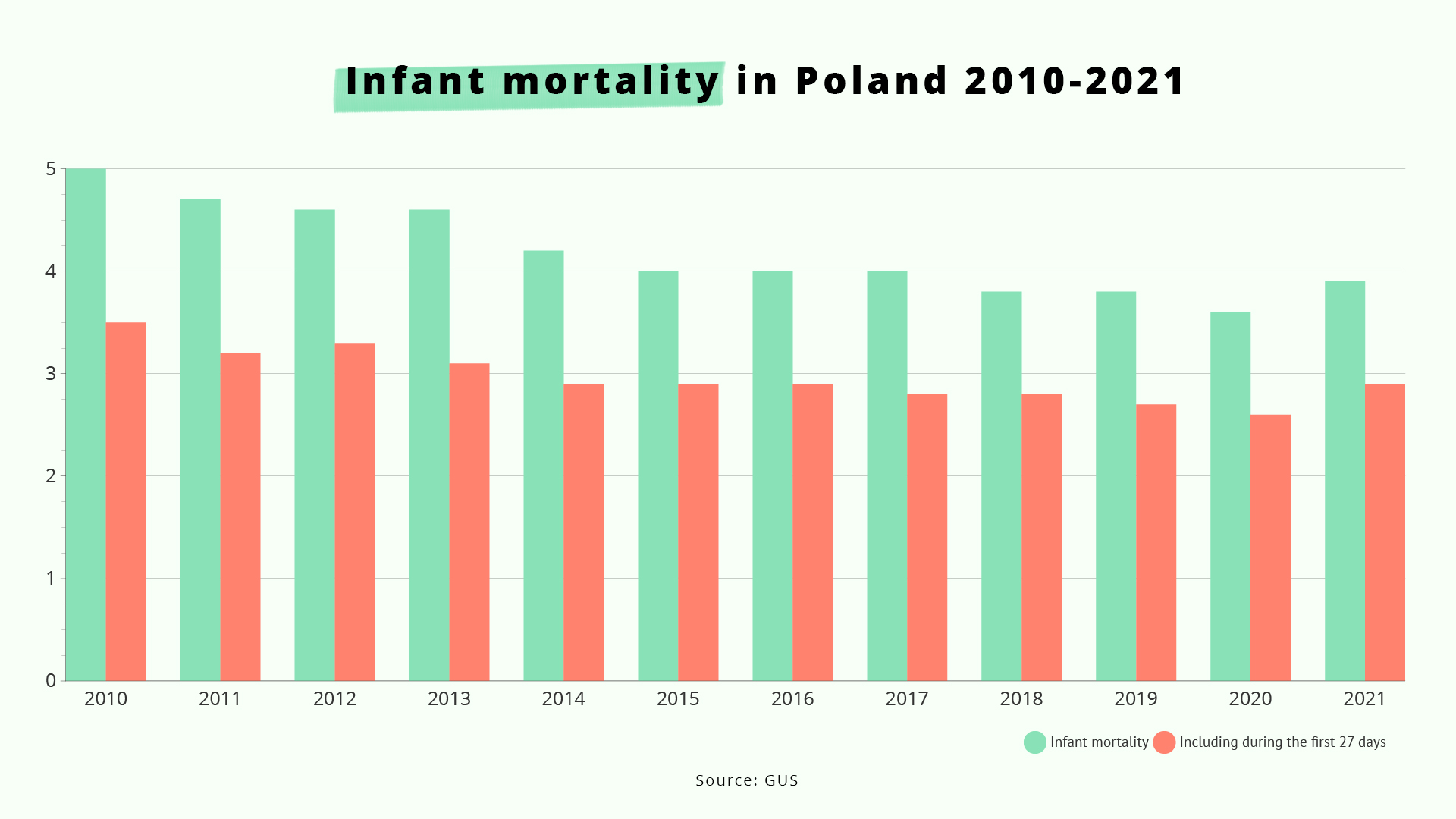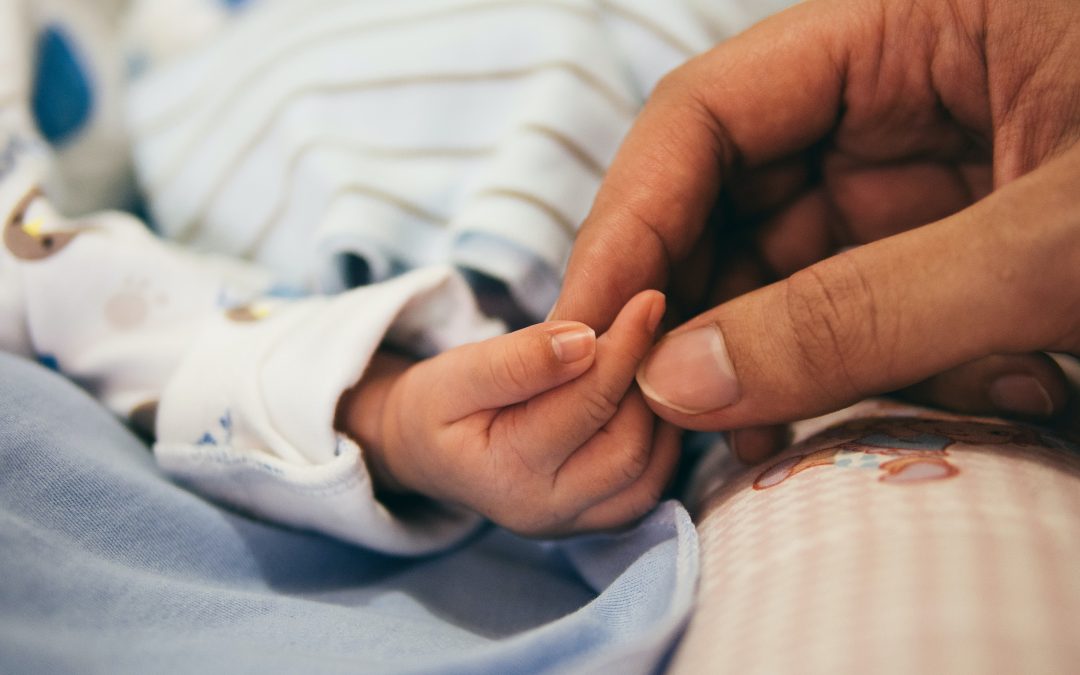The infant mortality rate increased in Poland in 2021, reversing a long-term decline. Doctors – who have also noted a rise in miscarriages and stillbirths – say that a near-total ban on abortion, which went into force last year, is behind the development.
Last year, the infant mortality rate was 3.9 per 1,000 births, a 9% rise from 3.57 in 2020 (which was slightly above the EU average of 3.4), according to data from Statistics Poland (GUS), a state agency. For neonatal deaths, on the first day of life, the rate rose 19% in 2021, from 1.08 to 1.28.
Last year’s figures bucked a long-term trend of declining infant mortality rates, which have fallen significantly since the early 1950s, when the figure reached almost 120 per 1,000 births. By the year 20f00 it had fallen to 8.1 and in 2010 stood at 5.0.

In 2020, Poland’s constitutional court ruled that abortions due to the detection of birth defects in the foetus were unconstitutional. That resulted in such abortions – which previously made up around 98% of legal terminations – being outlawed from late January 2021.
Opponents of the ruling argued, among other things, that it would force women to carry nonviable foetuses which were destined to die in the womb or soon after birth.
But Jarosław Kaczyński, head of the ruling conservative Law and Justice (PiS) party, which supports the ruling, said that he wanted to ensure that “even in cases where there is a very difficult pregnancy, when the child will inevitably die, when it is severely deformed, it will end in birth, so the child can be christened, buried and given a name”.
“In my opinion, one of the main reasons [for the increased infant mortality rate] is the constitutional court ruling,” Ewa Helwich, a professor of medicine and consultant in neonatology, told the Dziennik Gazeta Prawna daily.
“If [the previous abortion rules] still existed, some of these children would probably – technically speaking – not be in the statistics, because they would not have been born,” she explained.
Grzegorz Świercz, head of gynaecology and obstetrics at the Provincial Polyclinical Hospital in Kielce, likewise told the newspaper that “in previous years these pregnancies were terminated [because] foetuses had lethal defects as shown by prenatal examinations. But now nobody in the hospital does it”.
Krzysztof Preis, head of obstetrics and gynaecological oncology at the Provincial Polyclinical Hospital in Toruń, also noted that “the increases in the statistics can be explained by the lack of the right to terminate pregnancies for so-called embryopathological premises”.
However, he added that the deteriorating health of the population – including growing obesity and other lifestyle diseases – as well as the impact of the pandemic – which further strained an already overstretched healthcare system – might also have had an impact on infant mortality.
Doctors interviewed by Dziennik Gazeta Prawna also point to an increase in the number of miscarriages and stillbirths, which are not reported in the GUS data.
“As recently as 2019, we had about 100 curettages [medical procedures for removal of foetal tissue] per year,” said Świercz. “Last year [it was] already about 140.” He also noted that the number of cases in which miscarriages have to be induced due to the death of a foetus increased.
The newspaper reports that doctors have told it off the record that many of the women who ended up in hospital for such procedures have sought to induce abortion pharmacologically at home themselves.
Since the introduction of the near-total abortion ban last year, a host of NGOs and activists have been helping women obtain self-administered abortion pills.
Main photo credit: Aditya Romansa / Unsplash

Alicja Ptak is deputy editor-in-chief of Notes from Poland and a multimedia journalist. She has written for Clean Energy Wire and The Times, and she hosts her own podcast, The Warsaw Wire, on Poland’s economy and energy sector. She previously worked for Reuters.




















